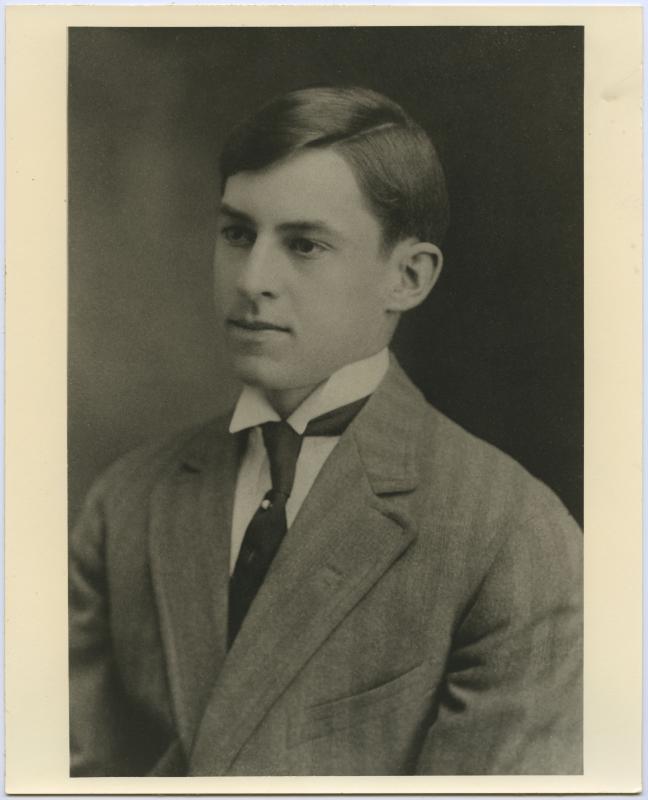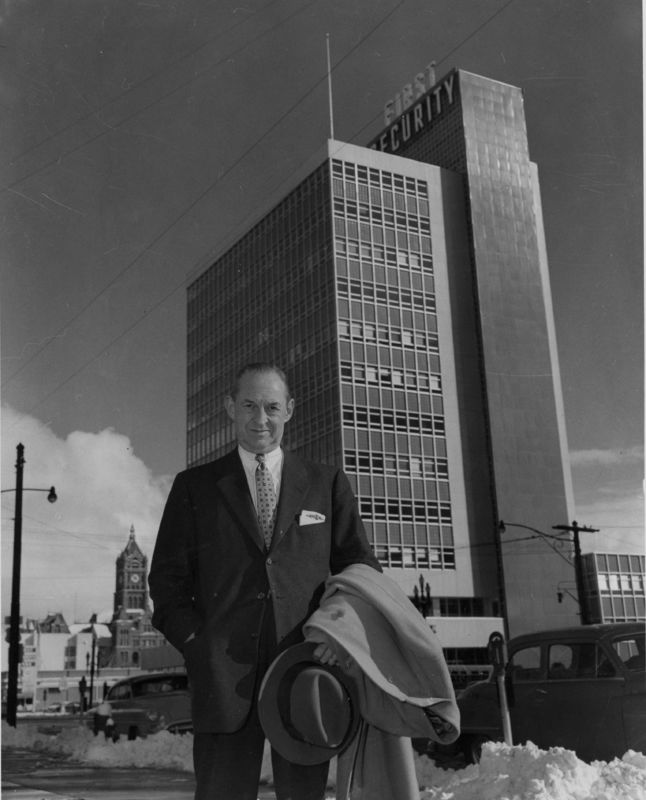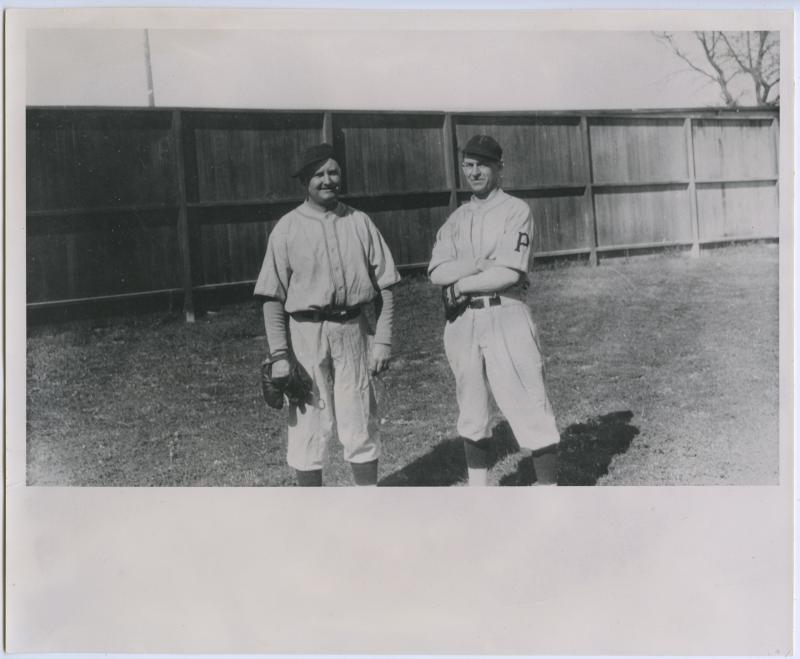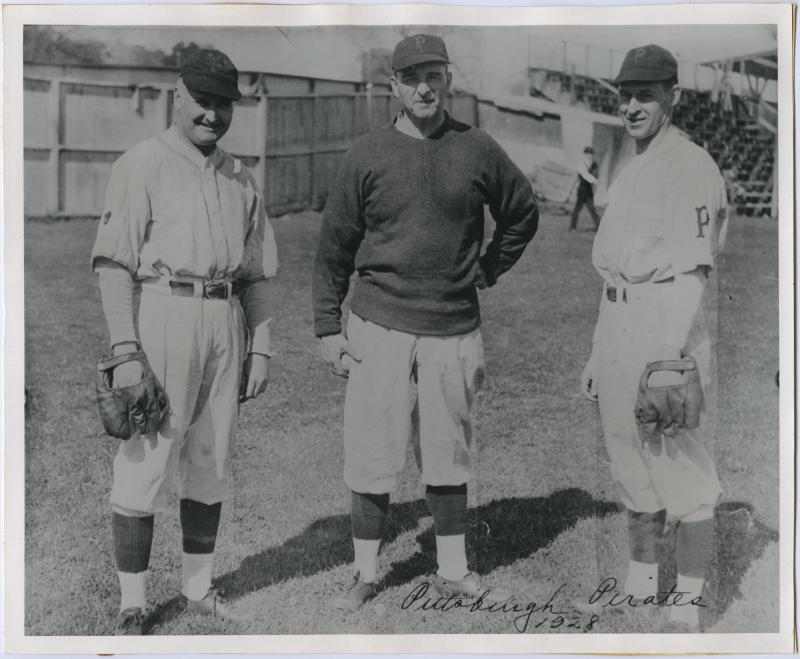Introduction
"Brigham Young was the colonizer, Daniel Jackling the mining giant, and Marriner S. Eccles was Utah's premier financial genius" was the introduction to a 1977 Deseret News review of the life of Marriner S. Eccles. He became the "principal economic philosopher of the New Deal," according to James Gardner, a professor at the University of Utah's College of Management. Another review of Eccles' biography stated, "the political and institutional principles he advocated and laid down as head of the 'Fed' are the very armature of the legislative structure under which US business and finance now operates."
Marriner Eccles, born 9 September 1890, to David Eccles and his second wife, Ellen Stoddard, was the oldest of nine children. David Eccles, a leading Utah entrepreneur and a Mormon polygamist, also had twelve children by his first wife, Bertha Maria Jensen. To distinguish between the two families, Bertha and her children were known as the Ogden Eccles; Ellen and her children as the Logan Eccles. The significance of these geographical distinctions was later diminished when Marriner Eccles moved to Ogden and centered his business pursuits there during the 1920s.
Marriner Eccles attended Brigham Young College in Logan, Utah, which he used more as a high school than a college. He left school in June 1909 at the age of 18; this was to be the end of his formal education. His father, whose schooling was limited, did not believe an extended education was necessary for success in business, and Marriner proved him correct. As the oldest son in his family, the responsibility for the welfare of his mother and his eight brothers and sisters, as well as the administration of the estate left them by their father, was thrust upon him.
In the meantime, he did what most other young Mormon men did - he served a mission for his church. From 1910 to 1912 he was in Scotland, the country his father left as a penniless youth. While in Scotland he met May Campbell Young (Maysie), his wife-to-be. On his return to Utah they corresponded, she joined him in Utah, and they were married in 1913.
His marriage and business career began at the same time. He first became president of the Hyrum State Bank, and a director and officer of the Thatcher Brothers Bank in Logan, two institutions in which his father had held significant interests. In 1916 he organized the Eccles Investment Company, a holding company, that would exist for the next sixty years. Throughout the 1920s he built his business base in Utah. He assumed control of the First National Bank and First Savings Bank of Ogden. Eccles was also able to assume control of or take a leading role in the direction of several companies in which his father had held interests. These companies included Stoddard Lumber, Sego Milk, Eccles Hotel Company, Anderson Lumber, Mountain States Implement, Utah Home Fire Insurance Company, Utah Construction, and Amalgamated Sugar.
By 1918, Marriner and Maysie Eccles were the parents of three children: Campbell, Eleanor, and John (a fourth child died at an early age). During the next decade Eccles acquired interests in additional banks leading to the formation of the First Security Corporation in 1928 with Marriner serving as president and his brother George as a vice president. The corporation is believed to have been the nation's first bank holding company. At the end of the 1920s, Marriner Eccles had achieved a full measure of success.
The next decade would tell a different story. By 1930, the nation was in the grip of the Great Depression, and Eccles stood to lose much of what he had worked for during the previous eighteen years. As he reflected on the dynamics of the national economy and the responsibilities of business and government toward society, he decided that "hard work and thrift as a means of pulling us out of the depression is unsound economically. True hard work means more production, but thrift and economy means less consumption." Since these two forces were difficult to reconcile, his answer was that of controlled deficit financing on the part of government. Eccles was often asked to address local groups about his fiscal and monetary views. One group particularly interested in his ideas was an organization of Ogden businessmen called the Freidenkers. German for free-thinkers, they were also known phonetically as the "free-drinkers." Eccles was a member of this group. Another member was Robert Hinckley, who later served in the Roosevelt administration. Hinckley was a nephew of Senator William H. King, a Utah Democrat, who was a member of the Senate Finance Committee. The committee had been directed to determine the causes of the depression and to suggest legislative remedies. Hinckley recommended to Senator King that Eccles should be invited to testify before the committee.
In a speech about unemployment that Mr. Eccles gave at the 133rd Annual Dinner of the Economic Club of New York, held on May 9, 1940, he commented on how he was variously portrayed by others:
"I have come more and more to distrust and dislike labels. However, if wanting to safeguard democracy in this warring world, if wanting to preserve private enterprise and the profit motive system, makes me a conservative, then that is what I am. But having a reasonably clear idea of what I want to conserve, I am prepared to favor measures that may be labeled liberal or even radical if they are at the same time a practical means to that end."




